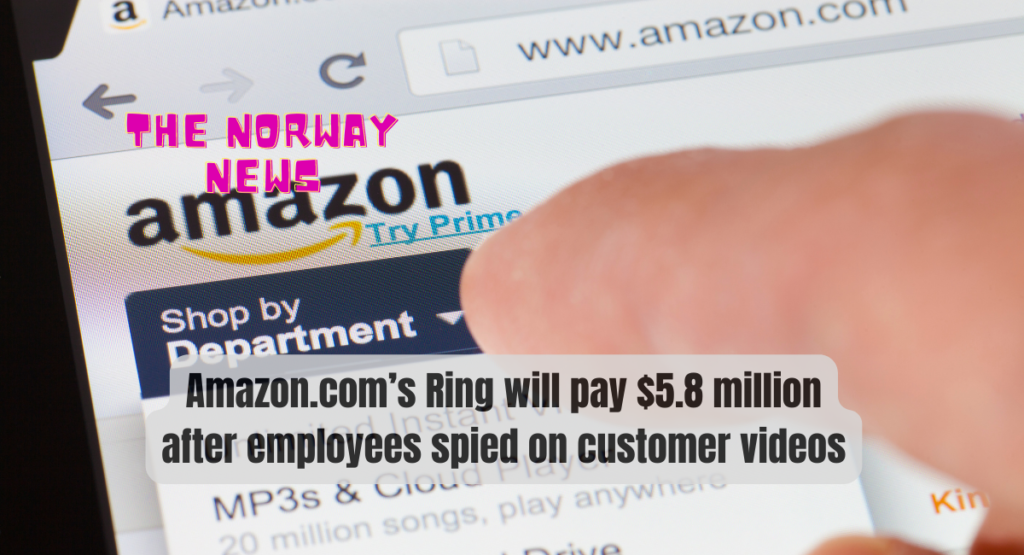Ring, an Amazon.com subsidiary, has recently been embroiled in a controversy that has shook customer faith and prompted privacy concerns. After it was uncovered that some of its workers were inappropriately accessing and seeing client recordings, the corporation agreed to pay $5.8 million to resolve a lawsuit. This incident has brought to light the significance of privacy and data protection in the fast developing market of smart home gadgets.
In today’s digital world, privacy has become a top priority, especially as more individuals incorporate smart home devices into their life. These devices provide ease and security, but they also capture a large quantity of personal information. The recent issue involving Ring, a popular maker of video doorbells and security cameras, has highlighted the need of protecting customer privacy.
Background of Ring and its video surveillance products
Ring, which was created in 2013, attracted widespread recognition for its revolutionary video doorbell, which allows homeowners to remotely watch their front doors. The company’s success led to its acquisition by Amazon in 2018, accelerating its growth and reach even further. Ring’s product line has grown to incorporate security cameras for more comprehensive home surveillance.
The incident and employee surveillance
It was discovered that certain Ring workers had seen client recordings without authorisation, which was a worrying finding. This breach of trust occurred as a result of an internal mechanism that allowed workers to watch Ring device videos. Access was not restricted to specific occurrences or for work-related activities, raising serious privacy concerns.
Because unauthorized access to sensitive client data should never have occurred, the event raised concerns about Ring’s internal security measures. Customers have a right to expect that their personal footage would be kept private, and that organizations managing such material will employ strong security procedures.
Response and actions taken by Ring
When Ring discovered the unauthorized access, it quickly acknowledged the problem and apologized publicly to its consumers. The organization acted quickly to rectify the situation and regain customer trust. Additional controls and restrictions on employee access to client data were imposed as part of the enhanced security measures.
Ring also worked with regulatory officials and was the subject of an investigation. Ring agreed to pay $5.8 million as part of the settlement, which would be used to compensate affected customers and enhance its data privacy standards. The incident served as a wake-up call for Ring and the industry as a whole, emphasizing the importance of strong data security procedures.
Customer privacy and data protection measures
With the growing popularity of smart home gadgets, maintaining consumer privacy and data security has become an important part of their design and functioning. Ring secures client films with encryption techniques and utilizes strong access controls to prevent employee access to critical material. In addition, the corporation has worked to tighten its security processes and educate customers about privacy settings.
The role of transparency and trust in the tech industry
This situation with Ring highlights the importance of transparency and trust in the tech industry. Consumers need assurance that their privacy will be maintained as they rely more on smart devices. Companies like Ring must prioritize ethical practices, clarify their data handling policies clearly, and establish a trusting environment with their customers.
Lessons learned and the future of customer privacy
This event serves as a reminder to the entire business of the significance of ongoing privacy and security measures enhancement. Companies must be proactive in discovering vulnerabilities and taking appropriate steps to protect client data. To ensure user privacy in the future, the smart home sector must learn from these occurrences and establish stronger data protection standards.
Conclusion
The Ring issue, which involved unauthorized access to user footage, has emphasized the need for comprehensive privacy safeguards in the smart home market. Ring’s response to the event, including strengthened security measures and the compensation, illustrates the company’s dedication to resolving the issue and restoring consumer trust. However, it is critical that all organizations in the industry emphasize client privacy and take efforts to avoid similar events in the future.
Customers must be attentive about their privacy and take the required safeguards to protect their data in the fast growing ecosystem of smart home gadgets. Individuals can reduce the hazards connected with the usage of these technologies by being educated and making informed decisions.
Read more: How to Fix a Water Damaged Phone







